Prof. Scott Galloway’s Provocative Predictions for the Future of Tech Takeaways
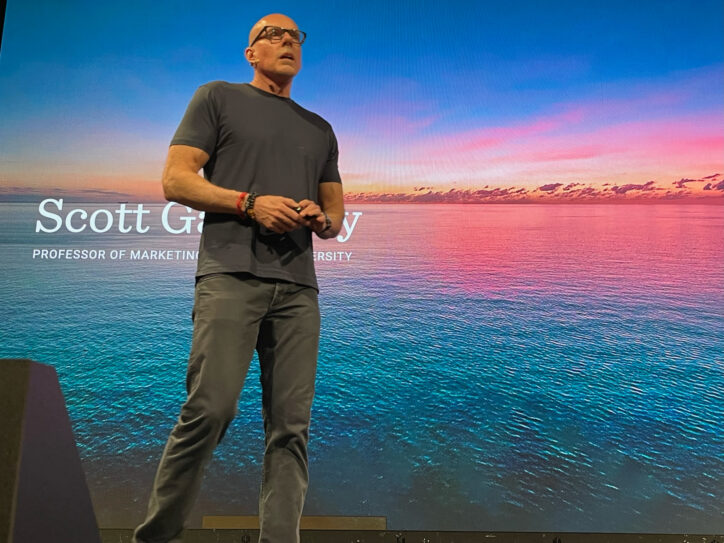
Aboard the Summit at Sea conference on Friday, May 19, Professor Scott Galloway got on stage to share his provocative predictions for the future of tech. We’ve got you covered on the takeaways as we had a front-row seat!
Scott is a Professor of Marketing at NYU Stern School of Business and is known for making tech, business, and cultural predictions — and holding himself accountable to them.
Read on for takeaways on his talk where he examines current trends like the metaverse and geopolitics and shares his vision of the greatest opportunities coming up in the near future. Surprise, surprise…A.I. is on the list!
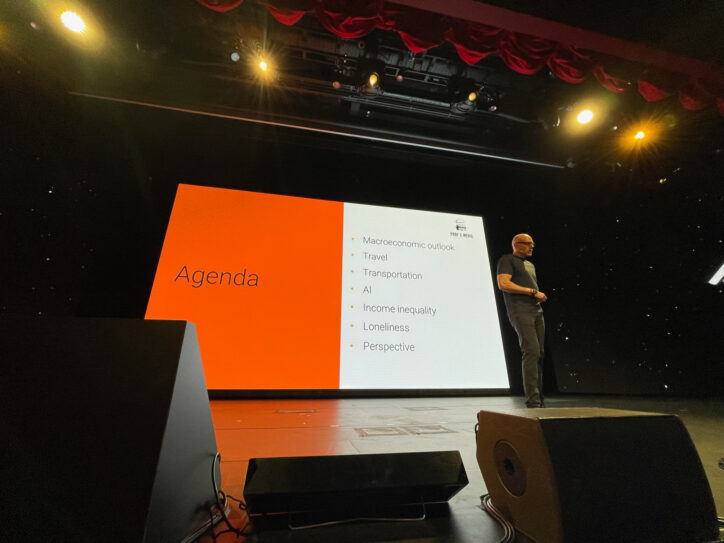
In his presentation, he covered macroeconomic outlook, travel, transportation, A.I., income inequality, loneliness, and some perspective from where he is in his career.
Macroeconomic Outlook
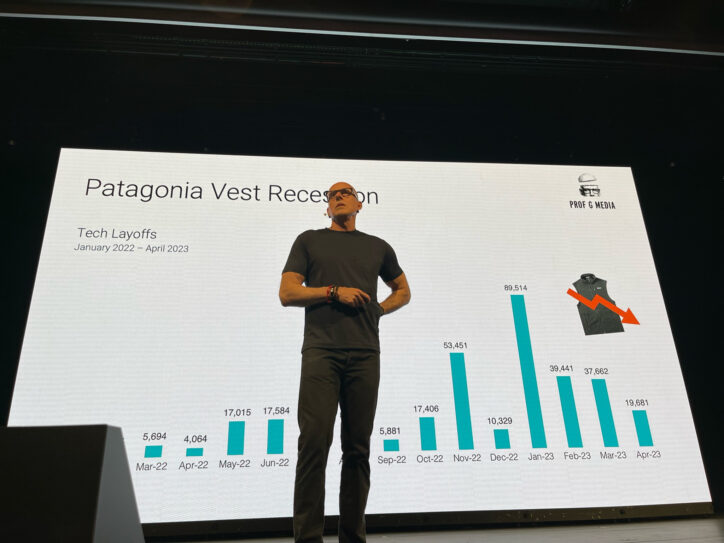
He’s not worried about a recession because we’ve been talking about and preparing for it, so likely will be mitigated — it’s the things that you don’t see coming that throw a wrench into the economy, like the pandemic.
He also shared that he doesn’t see any signs of a recession, that inflation is coming way down, unemployment is at historic lows, and retail sales are strong.
Companies in their service of shareholders above all else will cut jobs to save money and boost their bottom lines. He predicts the tech layoffs will continue to deepen in 2023 as a key tactic to cut costs (sigh…it’d be nice if capitalism wasn’t built solely on lining the pockets of shareholders and would choose people over profits!). He calls this the “Patagonia Vest Recession.”
Scott points out that the news has overblown the tech layoffs. There was a version of this chart in the presentation, and this one comes from his Disinflation article where he expands on this more, but in short, the percentage of layoffs is small overall compared to the pandemic hiring of employees:
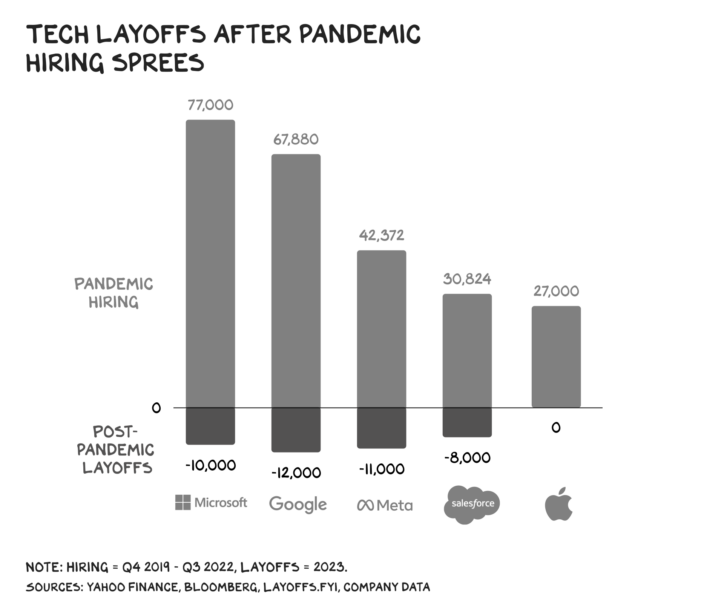
Travel & Transportation
Tourism is way up! There’s a record-breaking number of Americans getting passports.
Work from home is enduring from the pandemic.
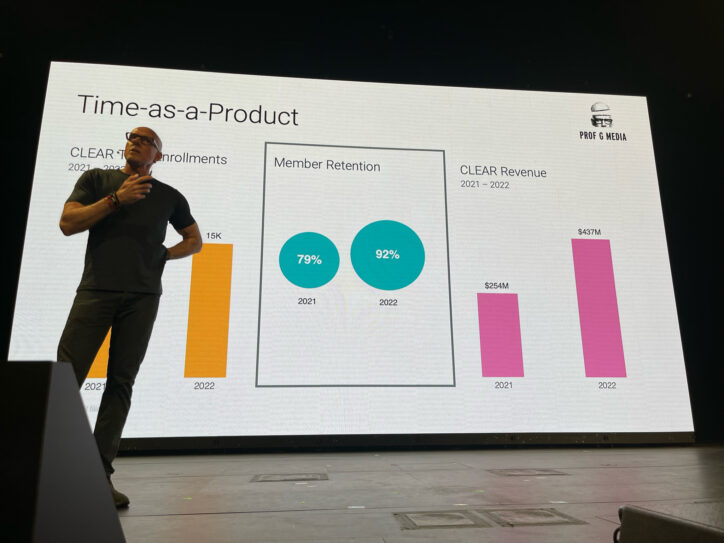
Scott shares that time is the most valuable resource we have and any company that saves you time, will come out ahead. He looks to Clear as an example for this and other companies that save you time.
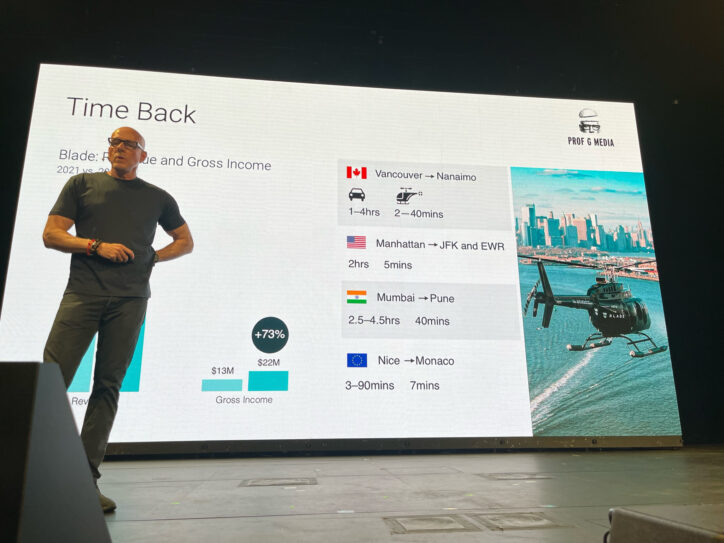
Artificial scarcity is the best business strategy. Look no further than Hermes. Hermes is the biggest brand with market cap. He has this chart in his presentation and this one comes from his article on Scarcity too:
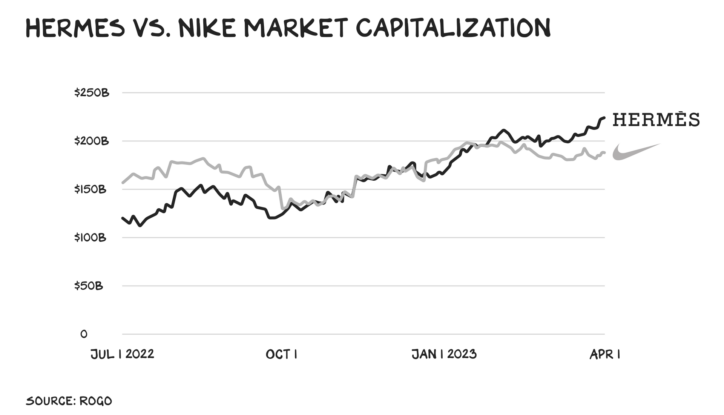
Income Inequality
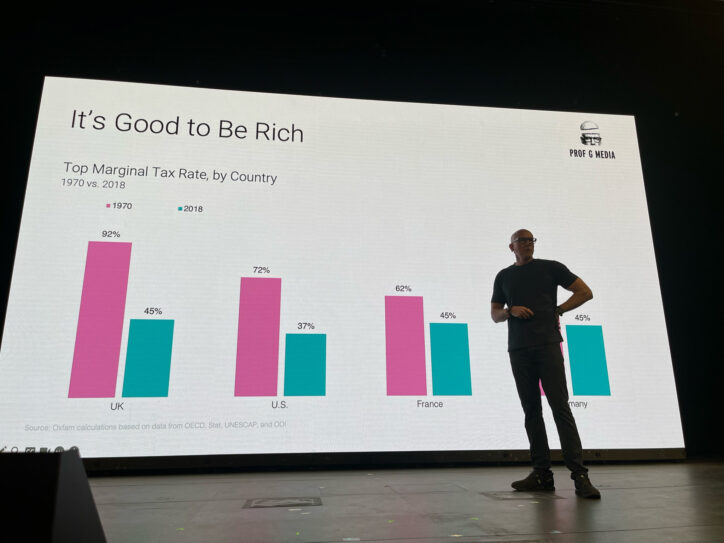
Scott shared that it’s good to be rich, takeover the government, and reward yourself with massive tax cuts to protect your wealth (this part was utterly depressing!). He shared that despite his success, his tax rate has been 17% and no tax on the first $10M and $25M on his company acquisitions.
The best invention in history is the American middle class and the cohort that pays the most in taxes are the ones who make between six and seven figures.
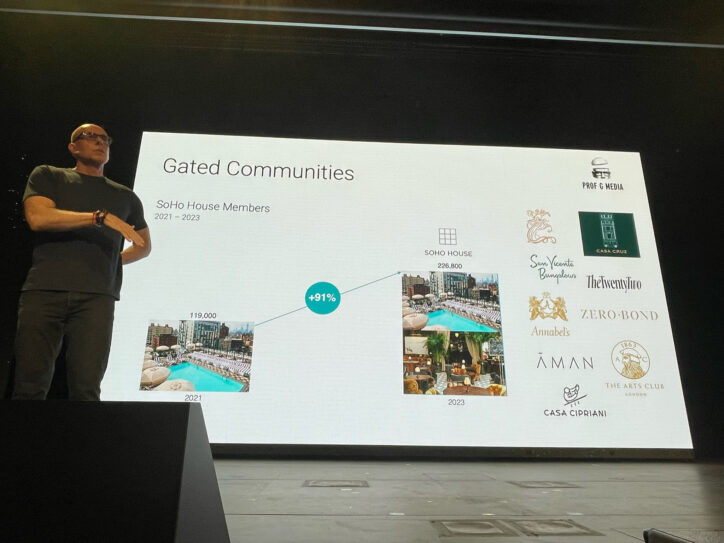
We’re seeing more services that serve the wealthy….and the ultra-wealthy, including gated communities and clubs.

A new category of businesses are serving the ultra-wealthy and $10K per night hotel rooms are selling like hot cakes!
The good news from his session is that serving the ultra-wealthy is where there is money to be made and the extreme wealth gap we’re witnessing historically self-corrects through war, famine, or revolution!
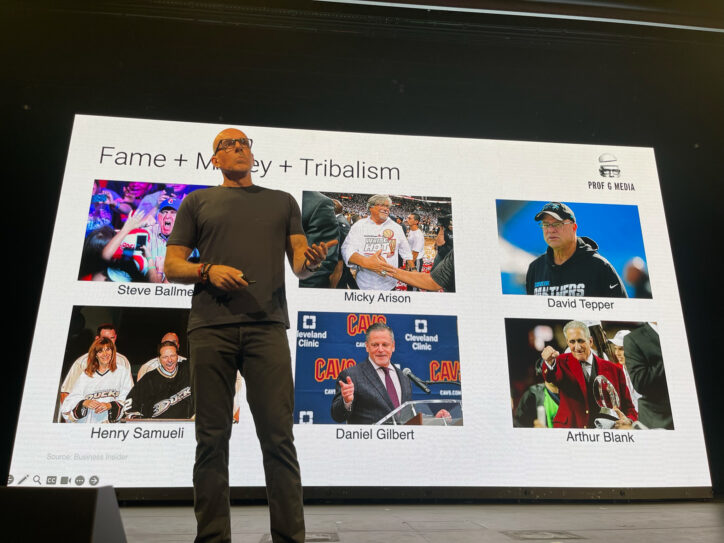
He’s bullish on buying sports teams as better investments that get real ROI over advertising for any brand and is one, if not the last, live collective viewing events.
Artificial Intelligence
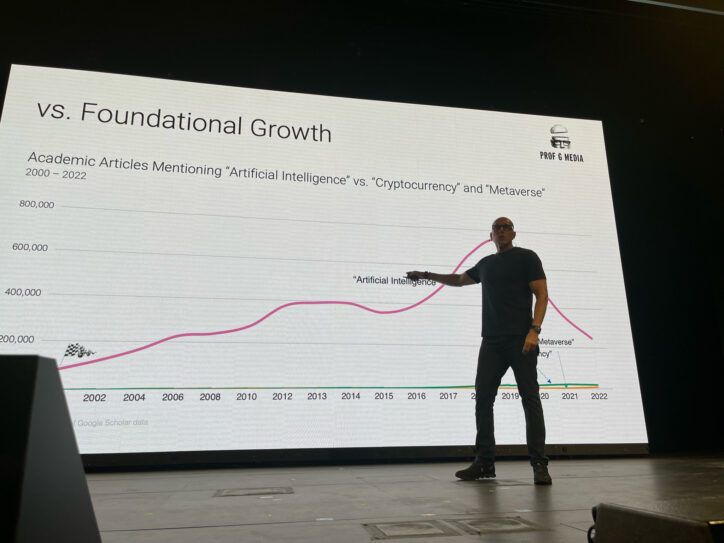
Based on his signal of academic articles, he sees artificial intelligence as a disruptive technology. At the bottom lower right, you can see the small blips of crypto and the metaverse which he’s not bullish on to say the least.
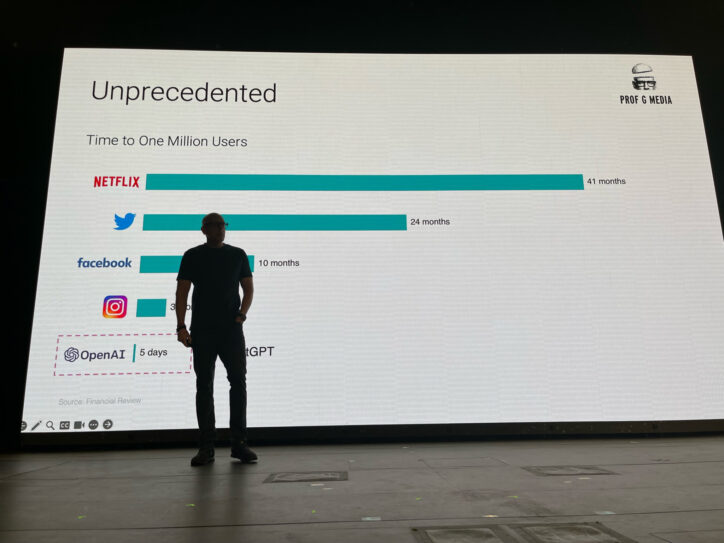
ChatGPT’s user adoption is unprecedented reaching one million users within the first 5 days of being launched — and 100 million users within two months!
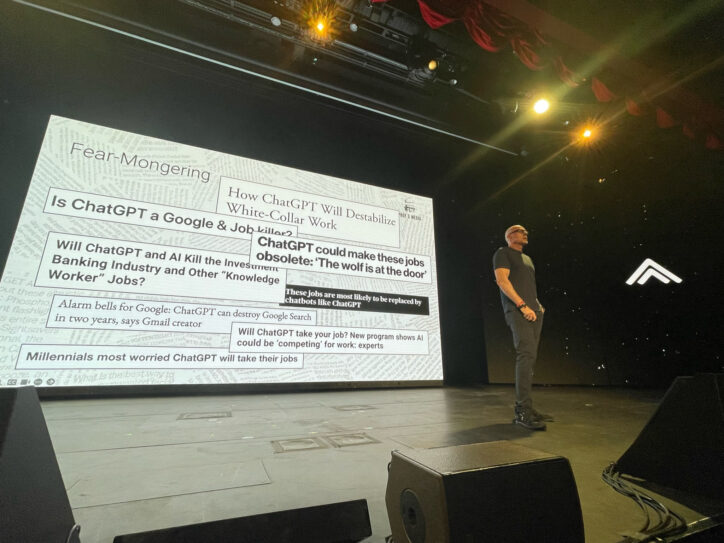
He’s not as worried about A.I. and points to a lot of media fear-mongering as overblowing the situation in service of driving clicks and feeding the media rage machine. He did say he sat in on one of Tristan Harris’s talks, but I’m thinking it was the game theory one and not The A.I. Dilemma — which everyone should watch so we don’t repeat the same mistakes we made with social media. I don’t know anyone who’s watched The A.I. Dilemma and not felt concerned about the trajectory of the race to release artificial intelligence without proper guardrails.
Ripe for Disruption
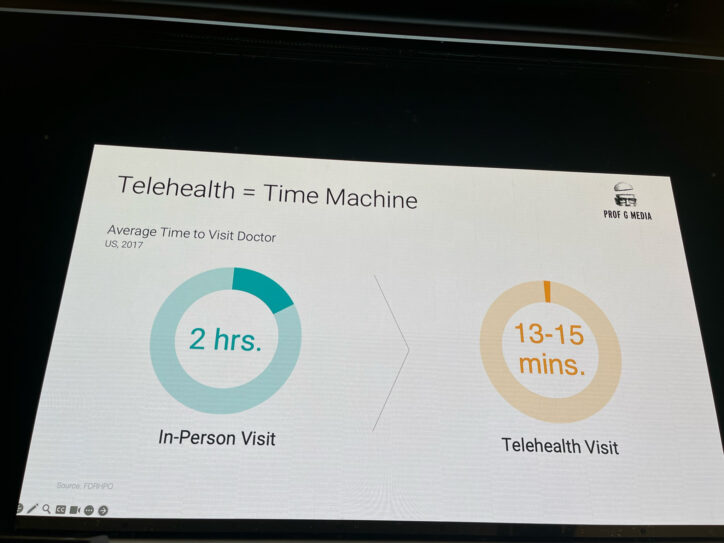
Industries that are ripe for disruption will be disrupted (not due to tech alone) and our broken healthcare system is at the top of his list!
Loneliness
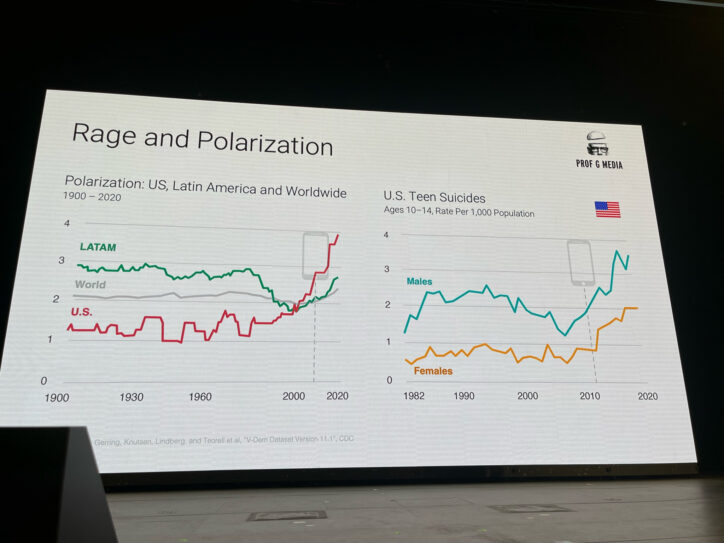
Scott points out that the pandemic didn’t cause the influx in teen depression — social media did.
Rage sells over sex and what he identifies as the biggest threat to our security is the hyper-polarizing media and social media landscape we’re in…because if we can’t agree, then we can’t solve bigger problems like climate change.
Meta has a bigger PR team than The Washington Post has journalists! He shared, “The ratio of bullshit to journalism went the wrong way over the last 30 years.”
CEOs who are the most successful are the best storytellers. And PR is a massive arm to helping shape these stories.
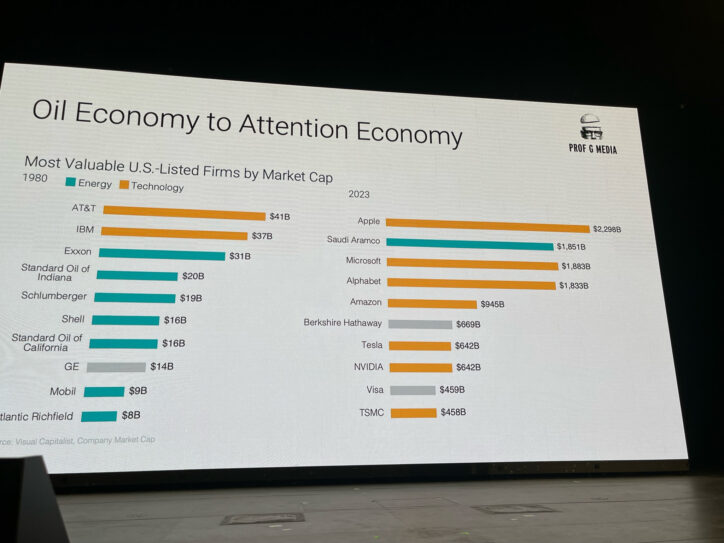
The attention economy has surpassed the oil economy.
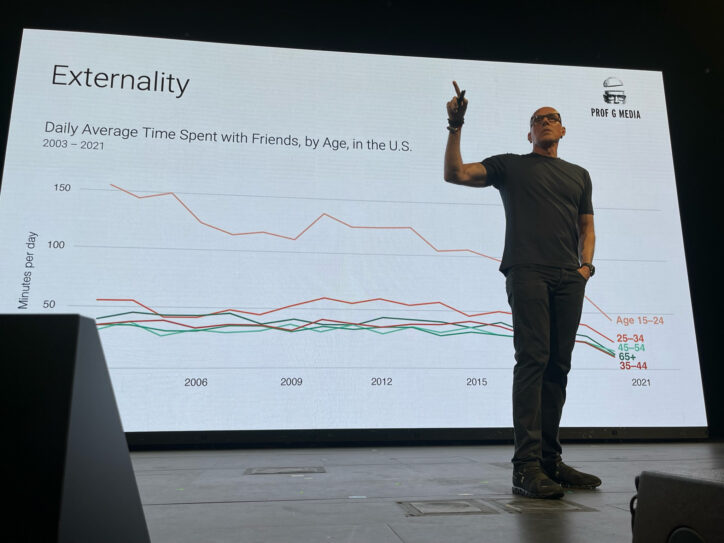
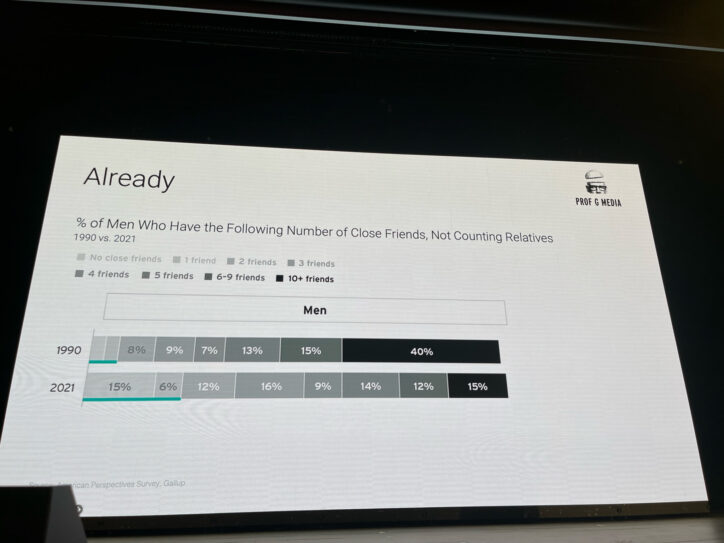
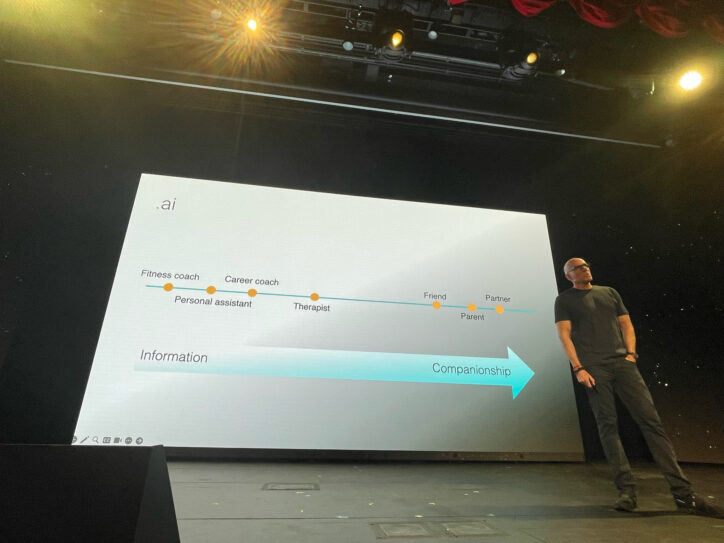
When it comes to A.I., his biggest concern is the loneliness epidemic, especially among men in the US which 1 in 7 don’t have any friends (this is very concerning as these men also are the most easily targeted for radicalization! And also punctuates the point of the need for IRL community and human to human connection). He predicts that men who are lonely will turn to the intimacy of A.I. chatbots which are low risk instead of meeting real people which is needed for positive health and wellbeing. He expands on this in his AiLONE article.
Some Perspective
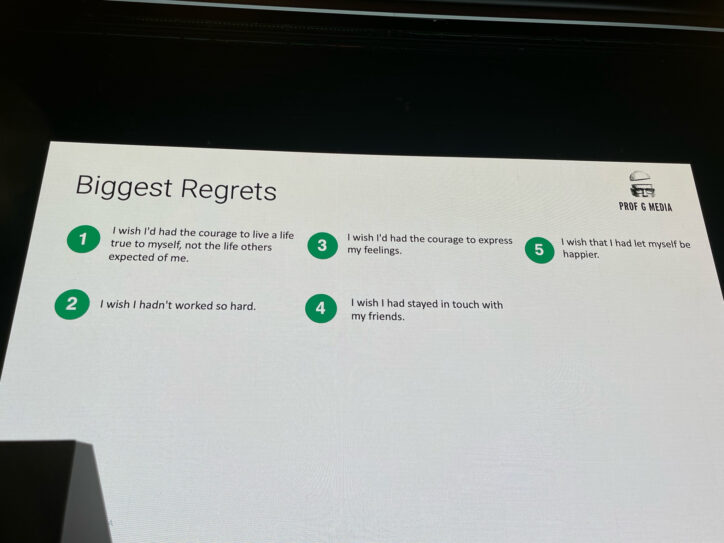
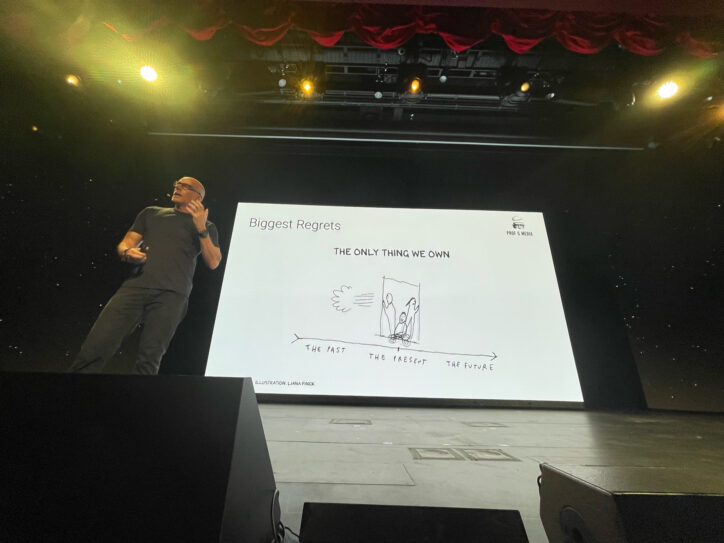
Scott, in trying to end on a positive note, shared some perspective in light of the moment of time we find ourselves in (or maybe where he finds himself at his age, career, and success).
He referenced a study on people’s biggest life regrets:
- I wish I’d had the courage to live a life true to myself, not the life others expected of me.
- I wish I hadn’t worked so hard.
- I wish I’d had the courage to express my feelings.
- I wish I had stayed in touch with my friends.
- I wish I had let myself be happier.
If you’re only living in the past or only living in the future, you’re never really present.
The past is the most immutable thing in the world, and the future is the most beautiful thing, unfortunately, we don’t have a lot of control over it. This is it. This is all we have, the here and now. His biggest fear, “I’ll look back at unbelievable blessings, great prosperity, people I love and who love me back….but was I really there for it?”
He left us with this question, which he asks himself all the time: “Are you here?”

Can you be more specific about the content of your article? After reading it, I still have some doubts. Hope you can help me.
Comment by Binance账户创建 — May 5, 2024 @ 5:40 pm
Your article helped me a lot, is there any more related content? Thanks!
Comment by binance referral code — November 2, 2024 @ 5:34 pm
I don’t think the title of your article matches the content lol. Just kidding, mainly because I had some doubts after reading the article.
Comment by binance — December 1, 2024 @ 8:54 am
Your article helped me a lot, is there any more related content? Thanks!
Comment by Открыть счет на binance — December 21, 2024 @ 1:18 pm
Can you be more specific about the content of your article? After reading it, I still have some doubts. Hope you can help me.
Comment by binance — January 7, 2025 @ 12:00 am
Can you be more specific about the content of your article? After reading it, I still have some doubts. Hope you can help me.
Comment by binance Registrera — May 17, 2025 @ 12:19 am
Your article helped me a lot, is there any more related content? Thanks!
Comment by binance open account — May 27, 2025 @ 1:38 am